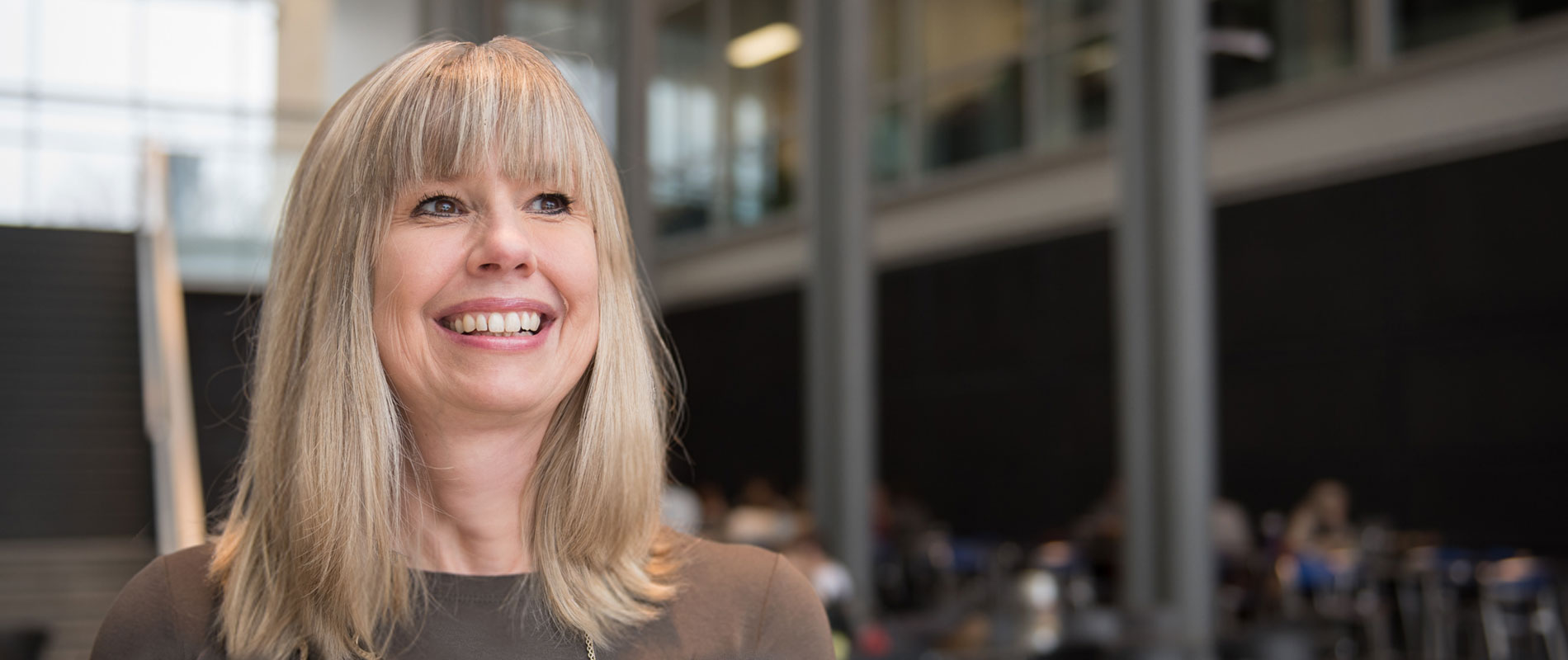Portrait of a researcher

Solving the mysteries of Morpheus
Julie Carrier
DEPARTMENT OF PSYCHOLOGY
A researcher at the Centre for Advanced Research in Sleep Medicine, part of the CIUSSS-NIM, and at the research centre of the Institut universitaire de gériatrie de Montréal. Network Director of the Canadian Sleep and Circadian Rhythms Network.
In showing the crucial role sleep that plays in both psychological and physical health, Professor Julie Carrier has emerged as the Canadian leader in a field of study that still holds many secrets. Her work shows that sleep quality among certain people in their 50s can predict Alzheimer’s and many other diseases. “Tell me how you sleep and I’ll tell you what to expect in terms of obesity and your cardiovascular and cognitive health in a few years,” she says.
She began working in this research field thanks to an undergraduate scholarship, and has never left it. “We spend one-third of our lives sleeping. And yet when I started my research in the 1990s, little was known about the mechanisms and functions of sleep.”
After completing her PhD at the Université de Montréal, she decided to devote her postdoc studies to exploring why sleep quality diminishes for seniors and its consequences. “Older people sleep for shorter periods, sleep more lightly and wake up more often. Sleep has a significant effect on memory and learning, and we have shown that, as people age, their brains are less capable of benefiting from sleep in this way.”
With the creation of the Canadian Sleep and Circadian Rhythms Network, bringing together some 60 researchers from 19 Canadian universities, Carrier has positioned the Université de Montréal as a world leader in sleep research.
What impact has your research had on society so far?
Sleep is starting to be seen as a public health issue. We are getting the message across that proper sleep is just as important as exercising and eating well, and not just for seniors. Attention deficit problems associated with sleep deprivation are even more prevalent among young adults, who are sleeping less and less and spending more and more of their nights sitting in front of a computer screen or gazing at their smartphones.
How is the medical community integrating the findings about sleep?
Patients who come to the Sacré-Cœur de Montréal hospital, where my main research team is based, are lucky, since they have access to the top experts in the field. Unfortunately, that isn’t the case everywhere. One of our challenges is to better share our discoveries with health professionals and to integrate the new sleep science into the training given to students in psychology, medicine and other health sciences.
How do you see the future of your field of research?
Thanks to new imaging technology, we can actually see sleep “in action.” For instance, we can observe what happens in the brain of someone who falls asleep after learning something. We are also starting to better understand how sleep affects our cardiovascular, immune and hormonal functions. But there is still much to learn about the precise mechanisms that allow sleep to regulate these functions. The next key discoveries will come from cell biology and other fields of basic research.